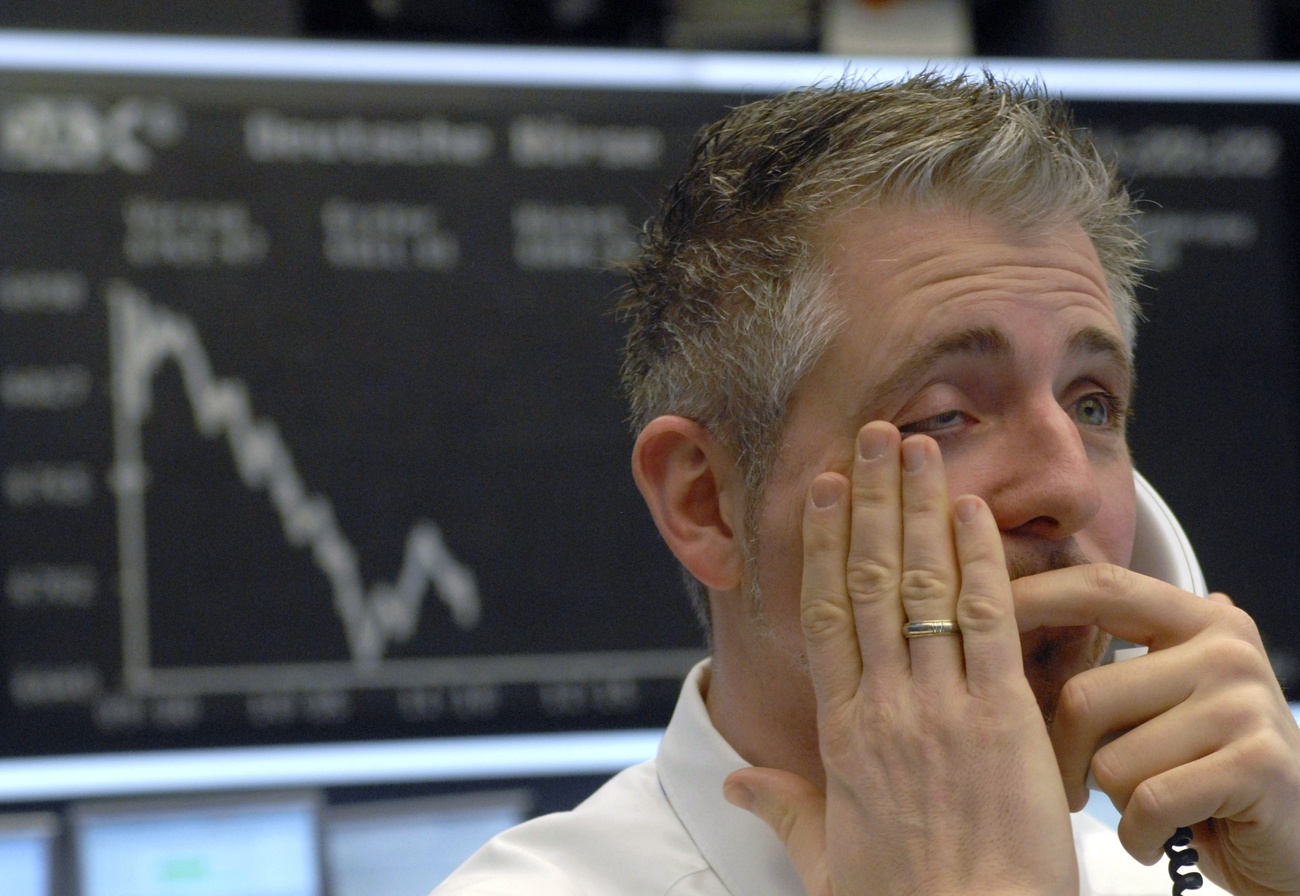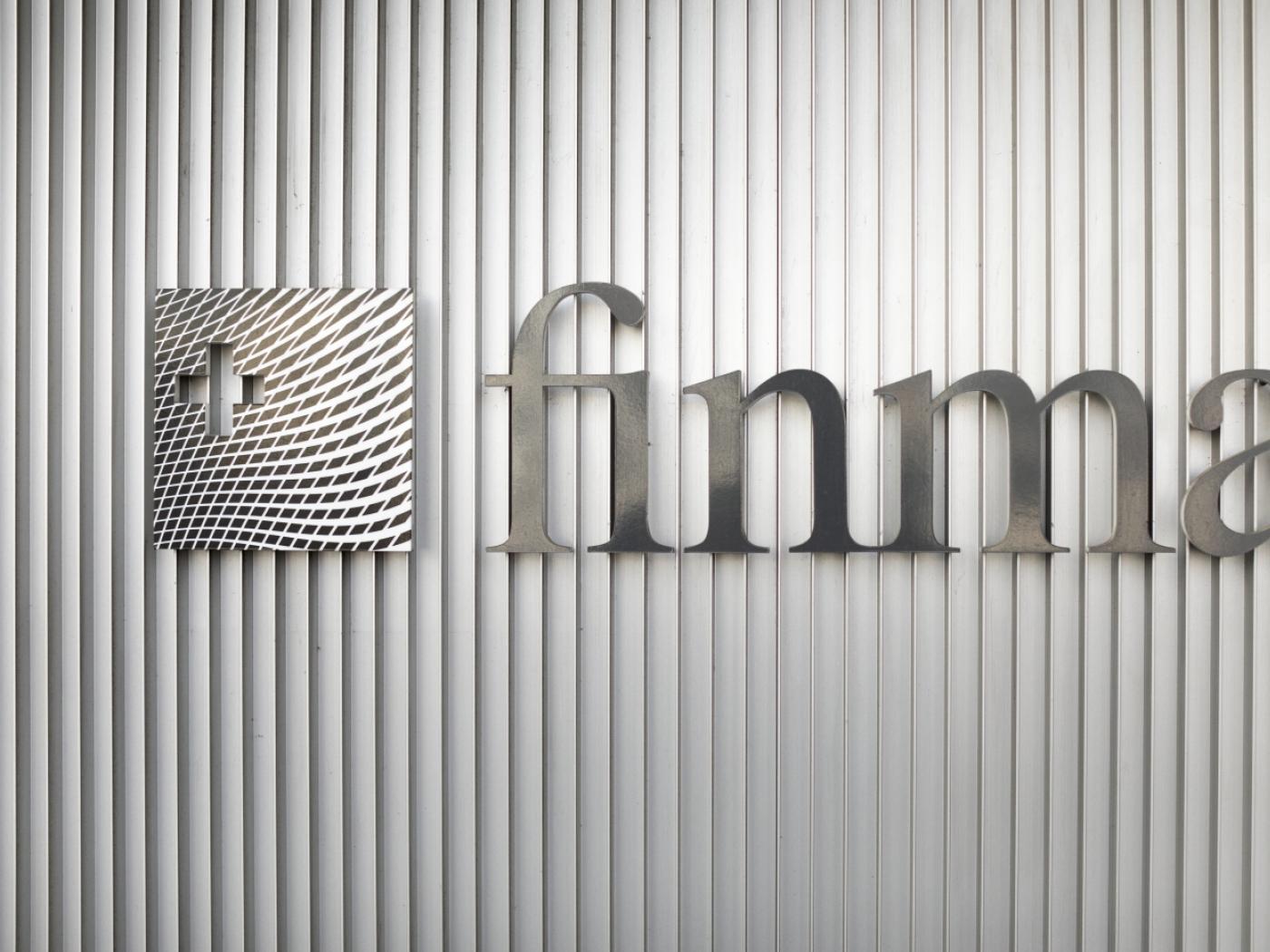
Alarm bells are ringing for Swiss exporters facing a familiar problem: the strengthening of the Swiss franc, which makes their goods more expensive for the outside world.
The strong franc is a recurring theme for companies that sell their products worldwide. When global economic conditions sour, investors dump their money into the franc, which acts as a “safe haven” during times of turmoil.
Recent conditions look ripe for another increase in the value of the franc. Hostilities continue in Ukraine and threaten to explode in the Middle East. In the meantime, the economies of several countries, including the United States, continue to be haunted by inflation.
The state of uncertainty has hit global stock markets, revealing a heightened state of nervousness among investors.
SWI swissinfo.ch looks at the latest flashpoint along with measures that Switzerland could take to mitigate unpleasant consequences.
What is the current state of affairs?
On Monday the Japanese stock index Topix crashed 12% – its worst single-day sell-off since 1987 – after the Bank of Japan raised interest rates. Some of the losses were recovered the following day with a 9% rebound, but other stock markets also plunged in response to the Japanese jitters.
Because Japan had lower interest rates than most other countries, some traders were encouraged to take out yen loans to fund their investments. The unexpected rise in rates unwound the so-called carry trade, forcing traders to sell off their assets to pay back the loans.
Market jitters were increased by disappointing job data in the US, but some economists think investors are behaving irrationally.
“The Japanese equity market is behaving with all the decorum and rationality of someone dancing the hokey cokey at a family wedding at two in the morning,” noted UBS Global Wealth Management chief economist Paul Donovan, who added that “markets seem to be independent of real world economics”.
What is the impact on the Swiss franc?
Earlier in the year, the franc was losing ground to other currencies, such as the euro. On May 24, the franc and euro were close to parity, with a euro buying CHF0.99. At the end of July, the exchange rate was CHF0.96. When global markets crashed on August 5, a euro would fetch only CHF0.93.
A flash appreciation of the franc is the worst nightmare for Swiss exporters, explains the Swissmem lobby group for exporters of mechanical and electrical goods. “Any sudden, strong or prolonged overvaluation of the Swiss franc against the currencies of our most important competitors damages the export industry in Switzerland and increases the pressure to relocate abroad,” Swissmem director Stefan Brupbacher told SWI swissinfo.ch.
Swissmem companies, which account for 330,000 jobs and 30% of Swiss goods exports, are already facing a difficult year. In the first three months of 2024, exports declined by 8.5%, sales by 5.4% and new orders by 2.3% compared to the same period last year.
Jane Foley, head of FX strategy at Rabobank, expects the franc/euro exchange rate to settle at CHF0.95 in the next one to three months. But she warns that a flare-up in violence in the Middle East could increase demand for the franc as a safe haven currency.
More

More
A blessing and a curse: the strength of the Swiss franc
Could the situation get worse?
A number of potentially dangerous events around the world make it difficult to predict how the global economy will fare for the rest of the year.
The International Monetary Fund (IMF) currently forecasts 3.2% global GDP growth for 2024, with 2.6% in the US, 5% in China, 0.9% in the eurozone and 1.3% in Switzerland.
But an escalation of violence in Ukraine or the Middle East would have a negative effect on growth and heighten the risk of further inflationary pressures. Added to this is the continuing trade war between the US and China, a continuous build-up of national debt by some countries and uncertainty surrounding the US presidential elections.
“The likelihood of a global recession has increased further,” noted Swiss economic consultancy group Wellershof & Partners in a note earlier this week.
The recent stock market wobble might be a symptom of deeper underlying issues, according to Rudolf Minsch, chief economist at the Swiss Business Federation.
“The direct impact of stock market developments is less important to the Swiss economy, because the Swiss population has fewer financial market investments than, for example, US residents,” he told SWI swissinfo.ch. But it might also signal a slowdown in investment appetite and a flight to safety. “Global demand for Swiss products would be weakened if people cut back on their consumption. If there were to be a recession in the US, the entire global economy, including Switzerland, would suffer.”
What can Switzerland do about this?
The Swiss National Bank can defend the value of the franc with its monetary policy and by printing francs to buy large quantities of other currencies – which it has done in the past.
More

More
Explainer: Will the India-EFTA pact be a ‘game-changer’?
Swissmem says its member companies are already implementing cost-cutting measures and are looking to expand into faster-growing markets, such as India.
The lobby group welcomes the recently announced free trade agreement with India, but says it is now vital for Switzerland to swiftly conclude an agreement with the European Union to stabilise future political and economic relations.
But this is no easy task. Negotiations have been running for years and were at one point broken off by Switzerland. Influential voices in Switzerland, including trade unions and right-wing political groups, are demanding immigration controls and protections for Swiss workers against wage dumping.
It remains uncertain when Switzerland and the EU will be in a position to agree on a deal.
Edited by Mark Livingston/ts
Full story here Are you the author? Previous post See more for Next postTags: Featured,newsletter





























